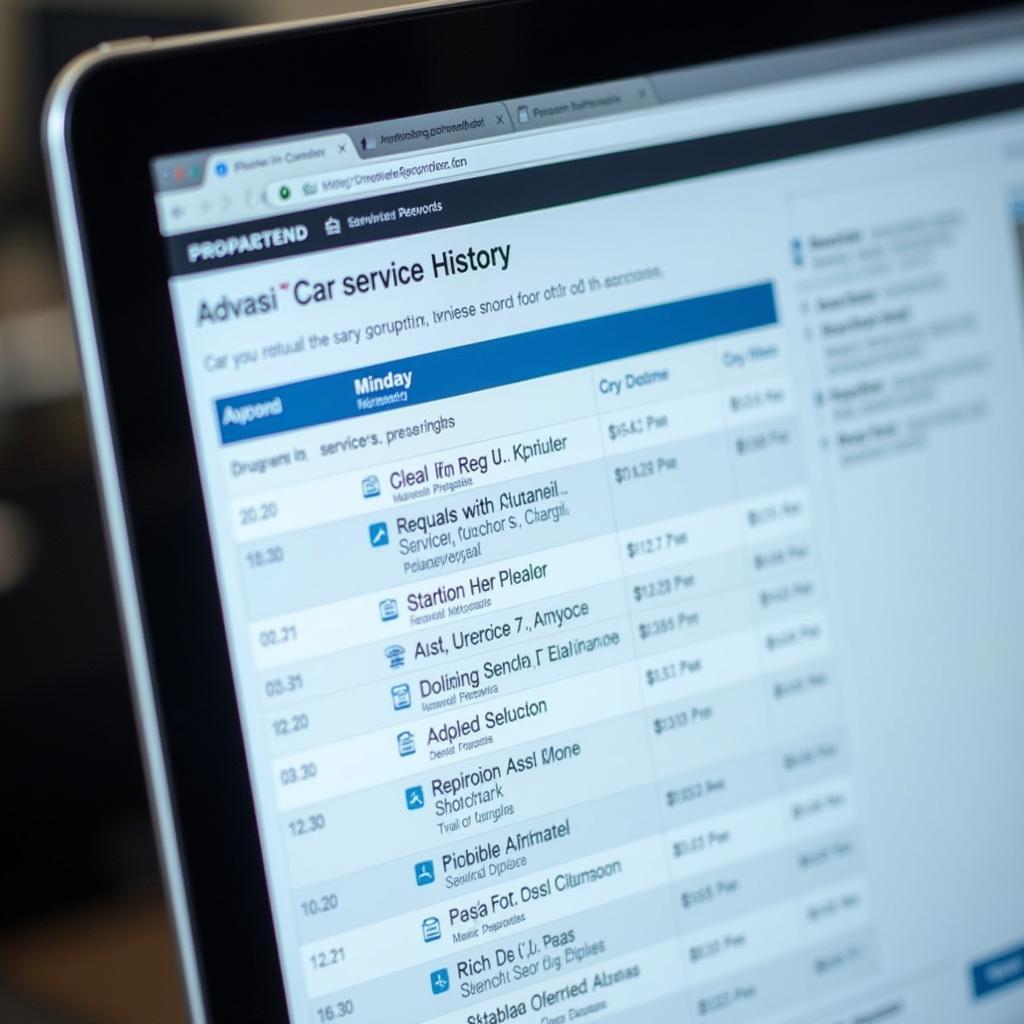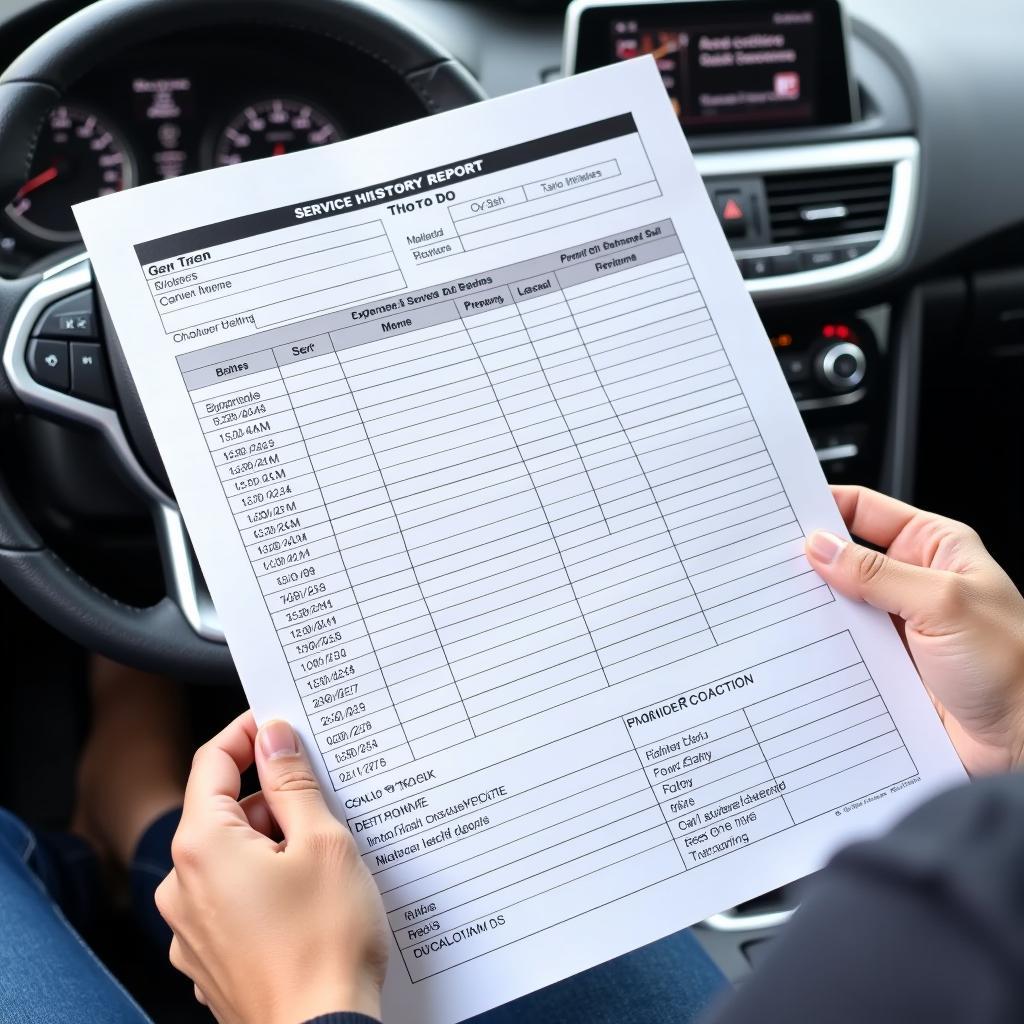How Does Car Service History Track and Why Is It Important?
Understanding how car service history is tracked is crucial for both car owners and potential buyers. This record provides a comprehensive timeline of all maintenance and repairs a vehicle has undergone, offering valuable insights into its overall condition and potential future needs.
Decoding Your Car’s Service History: Methods and Insights
Gone are the days of messy handwritten notes stuffed in glove compartments. Today, car service history is typically tracked through a combination of digital and physical records:
-
Digital Service Records: Modern vehicles often store service information within their onboard computers. This data, accessible through diagnostic tools, can reveal details like mileage at service, error codes, and parts replaced.
-
Electronic Databases: Many dealerships and repair shops now utilize electronic databases to log service history. These centralized systems allow for easy access and transfer of records, streamlining communication within the automotive industry.
-
Physical Service Records: Despite the rise of digital, physical documents remain relevant. Keeping paper copies of invoices, receipts, and service reports provides a tangible backup and can be crucial when selling your car.
 Digital car service records on a computer screen
Digital car service records on a computer screen
Unlocking the Value: Benefits of a Well-Documented Service History
A well-documented car service history is more than just a collection of receipts—it’s a powerful tool that offers numerous benefits:
-
Increased Resale Value: A comprehensive service history reassures potential buyers, demonstrating responsible ownership and increasing the vehicle’s desirability.
-
Easier Maintenance: Tracking past services allows mechanics to identify recurring issues, anticipate future needs, and perform preventative maintenance efficiently.
-
Warranty Validation: Maintaining detailed service records is often crucial for upholding warranty claims, ensuring you receive rightful coverage for repairs.
-
Transparency and Trust: Whether selling your vehicle privately or trading it in, a transparent service history builds trust with potential buyers or dealerships.
 Printed car service history report in hand
Printed car service history report in hand
What Information Does Car Service History Typically Include?
Car service history typically encompasses a wide range of information, including:
- Basic Information: This includes the vehicle identification number (VIN), make, model, year, and mileage.
- Service Dates and Mileage: Every service entry should clearly state the date and vehicle mileage at the time of service.
- Service Performed: Detailed descriptions of all maintenance and repairs, including parts replaced, fluids changed, and inspections conducted.
- Service Provider Information: The name and contact information of the dealership or repair shop that performed the service.
 Mechanic updating car service records on a tablet
Mechanic updating car service records on a tablet
Maintaining Your Car’s Service History: Tips for Car Owners
- Keep All Records Organized: Store digital copies securely and organize physical documents in a dedicated folder.
- Be Consistent with Service: Adhering to the manufacturer’s recommended maintenance schedule ensures regular updates to your service history.
- Choose Reputable Service Providers: Opt for dealerships or repair shops that utilize electronic databases or provide detailed invoices and reports.
- Request Copies of Records: Always request copies of all service records and store them diligently.
Conclusion
Understanding how car service history is tracked empowers both car owners and buyers. By maintaining meticulous records, car owners can ensure transparency, maximize resale value, and simplify future maintenance. For potential buyers, a comprehensive service history provides invaluable peace of mind, allowing for informed decisions and fostering trust in their automotive investment.

